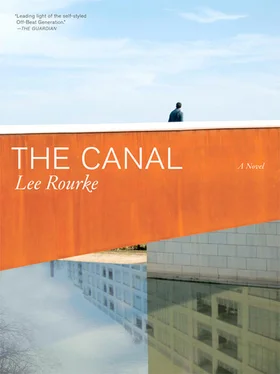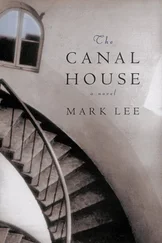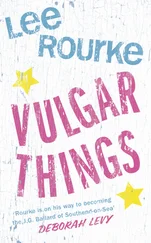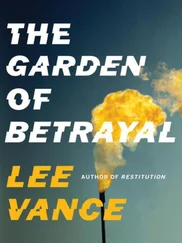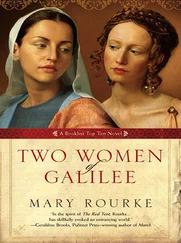As I was about to vacate the bench, somewhat nonplussed and weary, ready to walk back home for food, I noticed it on the ground, by the discarded cigarette ends, nestled by the right-hand foot of the bench: her purse. My heart skipped and began to pump blood faster and faster through my veins until it felt like my head was about to explode. It was a nondescript black purse, probably quite expensive. It was stuffed with money and credit cards. I counted the money: £410 in total. I immediately thought of all the things I could have bought with such an amount. Not that I was in any desperate need for money — I had been left a considerable sum which, if used wisely, would take care of me for quite some time. Yet, what was she doing with all that money in her purse? It’s not that she was going anywhere special. Surely it wasn’t safe? I looked for other things. There was an old, faded photograph. It looked like it had been left out in the sun, or beneath a strong light. I looked at the photograph. It was definitely her. She was standing next to someone, a man. I suddenly looked over to the man at his desk working through his pile of invoices, but he had gone, his desk was empty. I was unable to compare the faded image on the photograph with his bulk and frame — not that I thought it was him. I put the money back in the purse and pulled out two cards: a debit and a credit card. One gold, one silver. I held both in my hands and looked at her name. It was the same on each:____________. It was an ordinary name. It suited her. If I had a daughter I would probably want her to be called that, too. I held the cards in my hand, staring at them. It felt like a breakthrough had happened. I looked at the canal. The sun must have been shining directly above me because the whole of the canal — at least as far as I could see — seemed to be glistening, as if it was molten rock, or mercury. It shone with a cool brilliance that I had never quite seen before. It reminded me of machinery, a conveyor belt carrying a gleaming product through assemblage towards some state of completion. I looked at it for as long as I could, for as long as it lasted, and knowing that I would probably never see such light again. Then everything turned back to how it was before I looked at it … the murky water, the greyness. Then, as everything changed back, as one would switch off a light in a room, I found the card.
I stared at it. It was all I could do. My heart stopped functioning, blood lay dormant within me, things stopped. I was unable to do anything with it, the card, holding it in my hand with her purse and its other contents, my body unable to register, to deal with it, a momentary lapse. The words printed upon it took a while to sink in. I cast my eyes over her address. I had her address in my hands. She was a managing director of a web design & e-solutions company called telephus . I knew all I needed to know. I knew where she lived. I held the card in my hand and began to laugh. I quickly looked in the purse for a driver’s licence, but there was nothing else of any interest. I figured she must have hidden the licence somewhere, or destroyed it. But it didn’t matter, the card was enough. Now I could reach her. I laughed loudly. I felt like I had made a massive step, that I had somehow become closer to her, making some sort of personal connection. My cackle startled a cyclist as he passed me by, causing him to wobble and lean to his right towards the water’s edge. He stopped a couple of yards ahead and turned towards me. He didn’t say anything. He shook his head as I continued to laugh. It felt like I hadn’t laughed in a very long time.
I was beginning to feel at home on the canal. I was convinced that I had made the right decision to walk to it each day, instead of walking to work as usual. If I was honest, there was only one thing I really missed: the walk to work, the route I took each and every morning, before I decided to stop all of that and head to the canal. My walk to work would take me through Shoreditch Park in Hoxton. The park was originally a site of high-density housing, most of which was destroyed during World War Two, most notably in the Blitz of 1940–1. Documents record numerous V1 and V2 rockets landing in the area up until 1945. Post-war ‘prefab’ houses lasted up until the 1980s when the whole area was eventually demolished and transformed into a park. Each morning I would see the same man and German Shepherd dog out on the playing fields. The man would have a green Frisbee with him, which would hold the dog’s attention, until he finally threw it up into the air, causing the dog to chase it and leap up to catch it between its jaws — which it succeeded in doing ninety percent of the time, regardless of the weather, most probably due to the expertise of the man’s throw. The dog always looked so happy doing this, each morning, rain or shine, over and over again. On the few occasions that the dog would mis-time its leap to catch the Frisbee in its powerful jaws I would feel quite sorry for it, and as I would continue through the park on the path built over what was once Dorchester Street, I would become quite sure that this miscalculation would affect me somehow, my behaviour, throughout my entire working day. That German Shepherd, the green Frisbee, and the man, all combining to alter my day at any time during my short walk through Shoreditch Park each morning. A wry smile would often eke its way across my face when I thought about this on my way back home after work, walking in the opposite direction through the park — the dog, the green Frisbee, and the man elsewhere, oblivious to the effect they had upon me.
That very same evening I walked to her flat on De Beauvoir Road. I remember it clearly, as if it was yesterday. I even remember the cat, on the way, that sped out from a garden on Northchurch Road, into the traffic and almost under the wheels of an oncoming car. It cowered on the other side of the road underneath a plane tree. I walked over to it, the cat, making deliberate blinks with both my eyes. I wanted it to know that I wasn’t a threat. The cat blinked back, slowly. Then it walked over to me, close, executing three, maybe four, figure eights around my right leg, then stopping to rub its scent up against my shin. The cat, a tabby, made a loud noise that wasn’t quite like the traditional meow of a cat — it sounded like something else, something from the woods, something wild. I knelt down before it and allowed it to sniff at my outstretched fingers. It began to lick them with its sandpaper-like tongue. Northchurch Road was silent. Even the large, early Victorian houses seemed devoid of life. It was just me and the cat. Finally, it looked up at me and slowly blinked both its large eyes before walking off into the night.
I had always wanted to own a cat. A ginger tom, to be more precise. My father wouldn’t allow this, though. When asked why, he simply stated that he didn’t want cats in the house. He would lie to me, proclaiming every time that he was allergic to them.
“Why don’t you get a goldfish? They’re more or less the same colour.”
He said this to me on many occasions, but it never deterred me from wanting to own a ginger tom. So, I befriended the next door neighbour’s cat — it was a ginger tom named Oscar. The name suited the cat, even though I hated a boy who lived around the corner from our house with the same name. I would feed Oscar the cat each day, ignoring my mother’s protestations. I was told that cats aren’t loyal, that if you start to feed a cat and the food is better than the food it already receives, the cat would walk out of its owners’ lives forever. I didn’t believe any of this, of course, but it sounded like a decent enough plan. I fed him everything I could get my hands on: cold meats, cheese, smoked salmon, tuna, and pilchards. Eventually, Oscar and I became inseparable, and one day Tom — the next door neighbour — noticing our new-found bond said to me, “Seeing as he spends more time with you these days you may as well have him.” From that moment Oscar became my cat. I let him sleep in my bedroom without my father knowing. In fact, Oscar slept in my bedroom most nights, if he wasn’t out killing, and if he did want to venture outside I would simply let him out through my bedroom window where he could hop onto the roof of our kitchen extension and then down into the garden. Most of the time he would want to stay with me and only occasionally would he stay out all night. When he did this he would return in the morning with a dead mouse for me, or a dead bird, a trophy for me to admire and accept. Then one morning he didn’t return. I waited for him, imagining he was off on some mini-adventure, but when he still didn’t return the following morning I began to seriously worry. I asked Tom if he had taken Oscar back in, but he told me that he hadn’t seen Oscar since he gave him to me. I knew immediately that something terrible had happened to him. It wasn’t until three days later that Oscar was found dead in our next-door-but-one neighbour’s garden. Apparently, he’d eaten some rat pellets, or something else put out by the neighbours to repel anything feral. After Oscar’s death, my father — on hearing about it — offered to buy me another “as long as it spent most of its time outside of the house,” but I quietly refused.
Читать дальше
